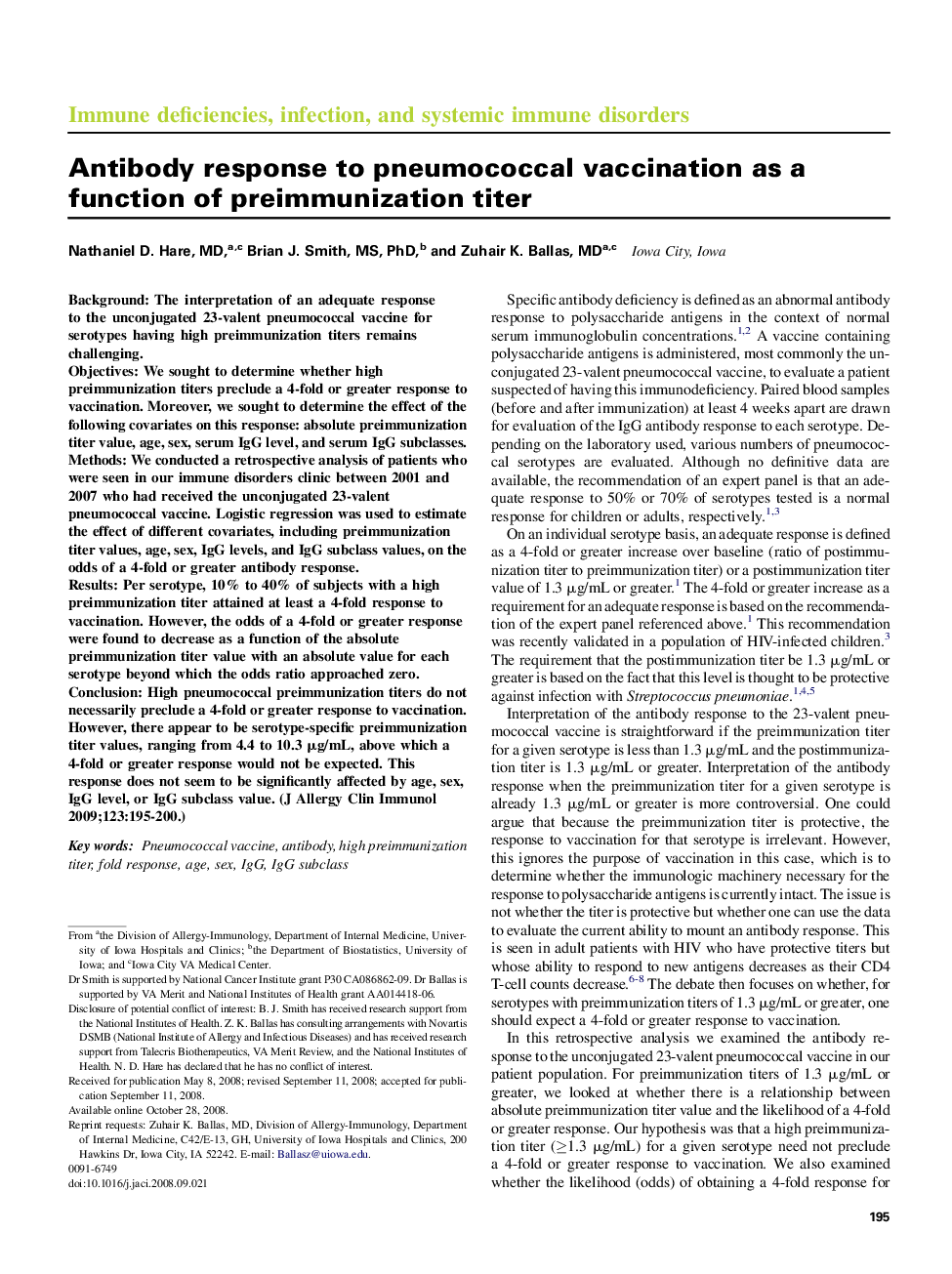| Article ID | Journal | Published Year | Pages | File Type |
|---|---|---|---|---|
| 3201140 | Journal of Allergy and Clinical Immunology | 2009 | 6 Pages |
BackgroundThe interpretation of an adequate response to the unconjugated 23-valent pneumococcal vaccine for serotypes having high preimmunization titers remains challenging.ObjectivesWe sought to determine whether high preimmunization titers preclude a 4-fold or greater response to vaccination. Moreover, we sought to determine the effect of the following covariates on this response: absolute preimmunization titer value, age, sex, serum IgG level, and serum IgG subclasses.MethodsWe conducted a retrospective analysis of patients who were seen in our immune disorders clinic between 2001 and 2007 who had received the unconjugated 23-valent pneumococcal vaccine. Logistic regression was used to estimate the effect of different covariates, including preimmunization titer values, age, sex, IgG levels, and IgG subclass values, on the odds of a 4-fold or greater antibody response.ResultsPer serotype, 10% to 40% of subjects with a high preimmunization titer attained at least a 4-fold response to vaccination. However, the odds of a 4-fold or greater response were found to decrease as a function of the absolute preimmunization titer value with an absolute value for each serotype beyond which the odds ratio approached zero.ConclusionHigh pneumococcal preimmunization titers do not necessarily preclude a 4-fold or greater response to vaccination. However, there appear to be serotype-specific preimmunization titer values, ranging from 4.4 to 10.3 μg/mL, above which a 4-fold or greater response would not be expected. This response does not seem to be significantly affected by age, sex, IgG level, or IgG subclass value.
